Taming ADDtitude Naturally!

Natural Therapies For Anxiety
7 April 2020
Tips on How to Beat Insomnia
21 April 2020
I have a personal soft-spot for children with ADHD because I feel they possess a spark in them which many of us wish to have. They see things differently because they tend to be incredibly clever and creative. However, children with ADHD do have the tendency to be a little “extra” and their energy can verge towards becoming destructive and exhausting for both parents and teachers alike. One of the biggest things I have heard from parents is “I don’t want to put my child on Ritalin because I’m afraid my child will lose their personality and become a shell of who they currently are.”
The good news is- there are things for your child to take that will help soften the ADHD symptoms without causing any side-effects such as reduced appetite, depression or “loss of personality and spark.” Before tapping into these natural options, it is important to first discuss the symptoms of ADHD and identifying conditions or deficiencies which may lead to a false diagnosis of ADHD.
WHAT ARE THE SYMPTOMS OF ADHD?
There are three different presentations which can occur in children with ADHD. These presentations are evaluated on the presence of inattention, hyperactivity and impulsivity.
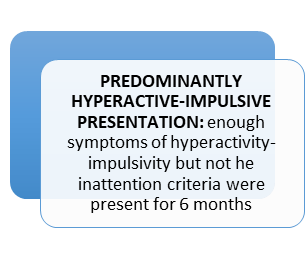

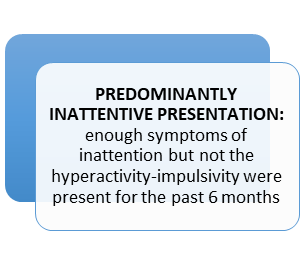
The actual symptoms present in children with ADHD are categorized according to inattention, hyperactivity and impulsivity :
| SYMPTOM GROUP | SYMPTOMS IN GROUP |
| INATTENTION | Fails to give close attention to details and makes careless mistakes in work Trouble holding attention in play or task activities Doesn’t listen when spoken to directly Trouble with task organization Avoids or dislikes tasks that require mental effort Loses things necessary for tasks and activities Easily distracted Forgetful in daily activities |
| HYPERACTIVITY | Fidgets with or taps the hands and feet Leaves seat in situations when remaining in the seat is expected Running about or climbing in inappropriate situations Unable to play quietly Acts as if “Driven by a motor” |
| IMPULSIVITY | Talks excessively Blurts out an answer before a question is completed Trouble waiting their turn Interrupts or intrudes on others |
What Deficiencies can Result in Symptoms Similar
to Those of ADHD?
- Iron Deficiency:
Iron is incredibly important for the transport of oxygen throughout our bodies. It also plays an important role in the synthesis of various neurotransmitters in the brain such as dopamine and GABA. Dopamine is the neurotransmitter responsible for focus and concentration, whereas GABA helps to reduce symptoms of anxiety and hyperactivity.

- Vitamin B12 Deficiency
Often a vitamin B12 deficiency can result in rather non-specific symptoms such as irritability, reduced memory recall, loss of appetite and weakness with restlessness in the limbs. In a more neurological context, vitamin B12 is incredibly important for the production of GABA -a naturally occurring neurotransmitter with an anxiolytic as well as calming function. A deficiency in GABA results in an imbalance with another neurotransmitter called Glutamate- an excitatory neurotransmitter. Glutamate and GABA have a very see-saw type of relationship where neither can co-exist without the other. If there is too much glutamate we have symptoms of hyperactivity, irritability and difficulty with concentration. If we have too little Glutamate and too much GABA we have symptoms of excessive sleepiness.
- Vitamin D deficiency
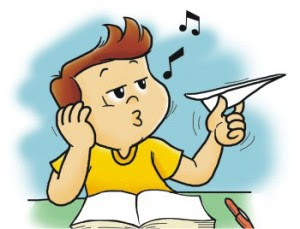
Most people associate vitamin D with bone health and bone building. However, vitamin D also plays an important role in brain health. L-Tyrosine, an amino acid, is a precursor for the development of Dopamine. The production of L-tyrosine is quite largely dependent on vitamin D. Various studies have found that vitamin D receptors exist in various areas of the brain including the hippocampus, hypothalamus, cingulated gyrus, prefrontal cortex and substantia nigra (Ellison-Wright et al, 2008). It has further been observed that vitamin D plays a role in the differentiation of brain cells during the developmental stages. It has also shown an ability to increase glutathione levels (a powerful antioxidant) to protect the body from oxidative stress (Eyles et al, 2013).
- Imbalance in the Intestinal Flora
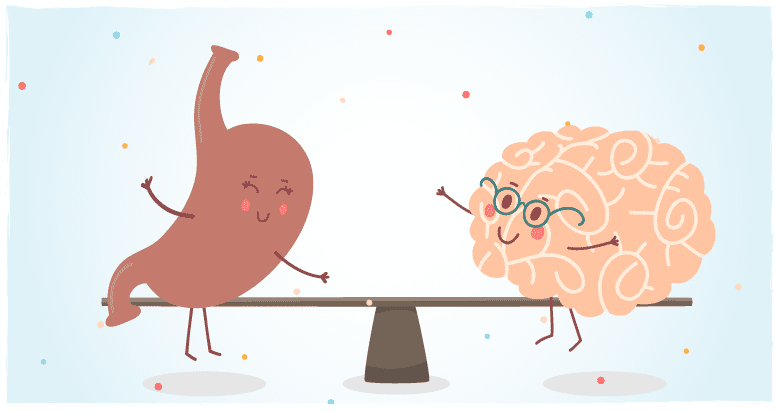
The stomach is often referred to as the “second brain” of the body. Our gut health is directly related to the functioning of our nervous system, as it is responsible for the absorption of many of our much-needed vitamins and minerals. One of the biggest co-factors in the absorption of minerals is intestinal flora. Intestinal flora not only helps us to absorb various minerals, but they also help us maintain minimal levels of a yeast known as Candida albicans. C. albicans can wreak havoc on our normal bodily systems by promoting inflammation, reducing concentration and causing irritability. I could probably spend hours discussing Candida and it’s horrible ways, but that will be for another blog post. An imbalance in gut flora has a direct effect on increasing the levels of Glutamate and causing that imbalance between Glutamate and GABA.
- Zinc deficiency
Zinc is a supplement which is incredibly important for immune system health, brain and memory functioning and bone health. The recommended daily allowance (RDA) for zinc is determined according to different age groups. For children between the ages of 4 and 8 the RDA is 5 mg, for children between 9 and 13 years the RDA is 8 mg and finally the RDA for teenagers between 14- 18 years is 11 mg (McGuire, 2011). Zinc is incredibly important for the process whereby vitamin B6 is converted into its active form. It is also incredibly important for both the production as well as the regulation of melatnonin (responsible for modulating Dopamine levels).
How to Manage ADHD Naturally!
First of all, it is always important to identify if a deficiency is actually present before just going straight into supplementing with various vitamins and minerals (especially with iron, vitamin D and vitamin B). If an overdose occurs with any vitamins it can wreak havoc on the entire neurological system- so please always do a check first.
- Omega 3

Omega 3 is brilliant in reducing inflammation in the nervous system. There have been various studies which have identified an imbalance between omega 3 and omega 6 in children with ADHD. Omega 3 fish oil contains EPA and DHA. EPA and DHA compete with AA(1) in the brain in order to reduce cellular inflammation and therefore help improve concentration ability, memory and focus.
- Probiotics
As previously mentioned, probiotics have a direct effect on maintaining healthy levels of Glutamate in the brain. There are many different probiotics available on the market ranging in strength and quality. I often recommend buying the ones that are found in the fridge as they tend to have more live bacteria as opposed to those which are kept at room temperature.
- Zinc and Vitamin B
As discussed in the previous section, zinc and vitamin B help to improve concentration and focus, while also reducing irritability and restlessness. As a daily supplement, follow the RDA mentioned above. A test for a vitamin B deficiency may allow for optimal vitamin B amounts to be calculated to improve results.
- Magnesium
Magnesium plays a large role in the production of GABA as well as Dopamine. In doing so, it helps to improve memory and concentration. Magnesium also has the ability to reduce anxiety symptoms in children with ADHD. Often, restless legs can be a result of magnesium deficiency for reasons not entirely understood.
- Homeopathy
Homeopathy works beautifully in children with ADHD and I have seen such amazing results with it. There have been many children who were threatened to be kept back a year, but with the correct supplementation and homeopathic remedy they were able to move forward into the next grade.
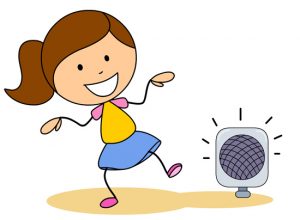
One of my favourite homeopathic remedies to use for ADHD is Tarentula hispanica. The children requiring this remedy are incredibly smart- especially with maths! They love to dance to house music or music with a strong beat to it. They tend to be quite manipulative and have a way of getting what they want. Tarentula children also tend to be incredibly destructive with a desire to touch absolutely anything and everything they see.

Another homeopathic remedy I have had quite a lot of success with is Datura stramonium. This remedy is quite an interesting one as there is quite a large tendency to “lash out” whether it be to physically bite, kick or scratch either the parent or another child. This child is particularly scared to sleep alone at night and experiences a lot of truly horrible night terrors.
Ellison-Wright, I., Ellison-Wright, Z. & Bullmore, E. (2008). Structural Brain Change in Attention Deficit Hyperactivity Disorder Identified by Meta- analysis. BMC Psychiatry, 8:51.
Eyles D.W., Burn T.H. & McGrath J.J. (2013). Vitamin D, Effects on Brain Development, Adult Brain Function and the Links Between Low Levels of Vitamin D and Neuropsychiatric Disease. Front Neuroendocrinol, 34(1): 47-64.
McGuire, S. (2011). U.S. Department of Agriculture and U.S. Department of Health and Human Services, Dietary Guidelines for Americans, 2010. 7th Edition, Washington, DC: U.S. Government Printing Office, January 2011. Adv Nutr, 2(3): 293-294.
